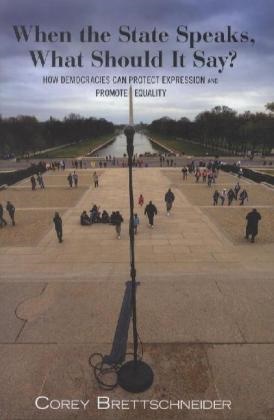Read more
Zusatztext "Brettschneider's [book] . . . is a carefully argued and coherent defense of the American approach, a defense more thoughtful, more internally consistent, and more connected with the relevant philosophical literature than will ever plausibly be located in a judicial opinion. His connection of issues about government speech with the political theory literature on neutrality is innovative, analytically deep, and careful, and his discussion of free speech theory and doctrine, while less innovative, is nevertheless rigorous, accurate, and well aimed at exactly the target of his interest." ---Frederick Schauer, Political Theory Informationen zum Autor Corey Brettschneider is associate professor of political science and associate professor! by courtesy! of philosophy at Brown University. He is the author of Democratic Rights: The Substance of Self-Government (Princeton). Zusammenfassung How should a liberal democracy respond to hate groups and others that oppose the ideal of free and equal citizenship? The democratic state faces the hard choice of either protecting the rights of hate groups and allowing their views to spread, or banning their views and violating citizens' rights to freedoms of expression, association, and religion. Avoiding the familiar yet problematic responses to these issues, political theorist Corey Brettschneider proposes a new approach called value democracy. The theory of value democracy argues that the state should protect the right to express illiberal beliefs, but the state should also engage in democratic persuasion when it speaks through its various expressive capacities: publicly criticizing, and giving reasons to reject, hate-based or other discriminatory viewpoints. Distinguishing between two kinds of state action--expressive and coercive--Brettschneider contends that public criticism of viewpoints advocating discrimination based on race, gender, or sexual orientation should be pursued through the state's expressive capacities as speaker, educator, and spender. When the state uses its expressive capacities to promote the values of free and equal citizenship, it engages in democratic persuasion. By using democratic persuasion, the state can both respect rights and counter hateful or discriminatory viewpoints. Brettschneider extends this analysis from freedom of expression to the freedoms of religion and association, and he shows that value democracy can uphold the protection of these freedoms while promoting equality for all citizens. ...

